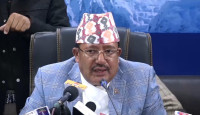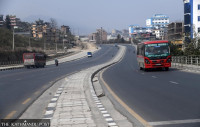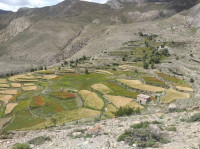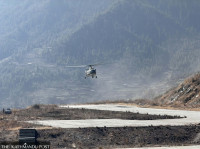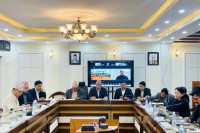National
Foreign Minister Rana promises to make envoy selection inclusive ‘next time’
Lawmakers question her about the efforts she made during her India visit last month to make two new airports operational.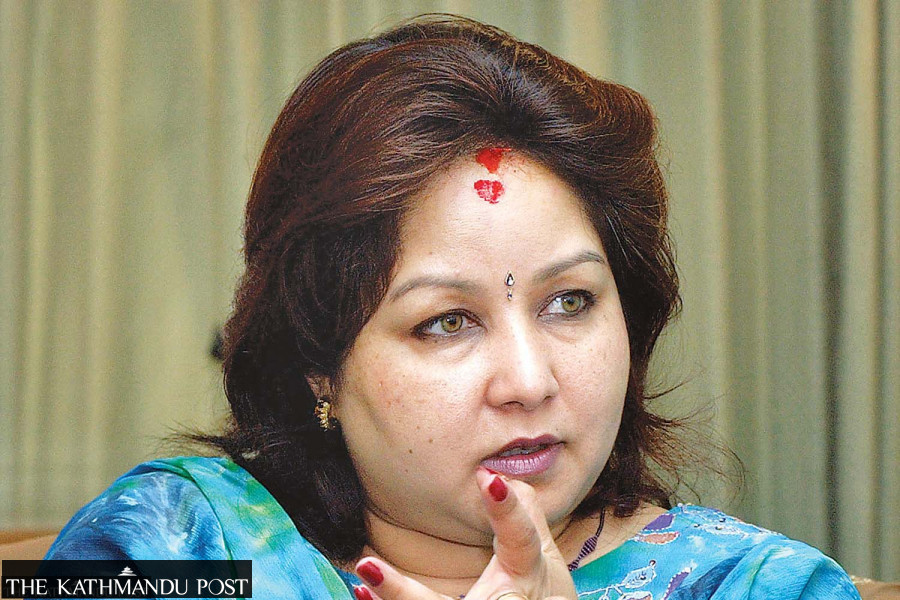
Post Report
Foreign Minister Arzu Rana has apologised to lawmakers for failing to uphold the spirit of inclusiveness while recommending Nepali ambassadors.
Speaking at the international relations and tourism committee of Parliament, Rana expressed her apology for not upholding the spirit of inclusiveness while picking ambassadors for 17 countries.
“We apologise for not recommending Dalits, Madheshis, and Muslims as ambassadors,” she said. The government recently recommended the envoys for 17 countries but the selection has faced severe criticism for trampling on the spirit of inclusiveness and not representing the various clusters of population.
"Ambassadorial appointments could not become inclusive. In the next round of appointments, we will ensure the representation of Dalits and Muslims. Sorry for this time," said Rana.
Members of the House committee had raised the need for inclusiveness in ambassadorial recommendations. The hearing process of the 17 candidates is ongoing at the parliamentary committee.
There are two positions vacant, Rana said, promising to consider the appointment of Dalits and Muslims while nominating envoys for two more countries. Later, the committee instructed the government to make ambassadorial appointments inclusive while following the applicable directives. The earlier KP Sharma Oli government in 2019 had introduced the criteria for ambassadorial nominations.
Article 5 of the criteria states: “Keeping in view the principle of inclusiveness, the nation’s welfare and representation, an experienced candidate with an excellent academic record and diplomatic capability will be appointed the ambassador.”
As per the spirit of the constitution and directives on envoy nominations, the government will honour the spirit of inclusiveness, she said, in response to the queries of lawmakers. The government fills half of the vacant posts with career diplomats and the other half with political appointees.
The foreign minister also defended the government’s positions as regards some of the recommendations, including that of Shankar Sharma for India. Sishir Khanal of the Rastriya Swatantra Party asked why the government flouted the ambassador appointment directives. Rana answered that Sharma's performance as Nepal’s ambassador to India was good. “He took several good initiatives at strengthening the Nepal-India ties,” she said.
Lawmakers had asked questions related to Nepal's relations with India, the minister’s recent visit to the southern neighbour, and the status of implementing China's Belt and Road Initiative in Nepal.
“My visit to India was a goodwill one, and I raised all the issues of our interest and concern,” said Rana, who paid an official visit to India last month. In New Delhi, she met with Indian Prime Minister Narendra Modi and External Affairs Minister S Jaishankar, among others.
"My visit to India was focused on strengthening Nepal-India relations. We talked about furthering mutual interests. And I also handed the invitation from our prime minister to Modiji [to visit Nepal], which he accepted happily," said Rana.
RSP lawmaker Khanal asked Rana about the progress made in operating the international airports in Pokhara and Bhairahawa. “When will these airports come into operation?” said Khanal. “What was discussed during the foreign minister's India visit regarding additional air entry routes so these airports can be operated?”
Khanal also asked Rana for updates on the two countries receiving the report prepared by the Eminent Persons Group on Nepal-India relations and the progress, if there was any, in resolving boundary issues.
The lawmaker also asked why the government was hesitant to discuss China's Belt and Road Initiative with Beijing.
Rana told the committee that she discussed energy export to India, and the agendas of expanding cross-border connectivity, promotion of Indian investments in Nepal, and additional air entry routes for Nepal in New Delhi.
Besides, issues like flooding and inundation of Nepal’s border regions, expediting the Pancheshwar Multipurpose Project, and Indian support to Nepali cricket through exposure to players and the construction of a cricket stadium in Dhangadi with India’s assistance had figured in her discussions with Indian officials, according to Rana.
“We agreed to reactive various bilateral mechanisms so as to give continuity to our communication at different layers,” she said, in response to the queries. The EPG report was not part of her discussions in the Indian capital, she added.




 19.66°C Kathmandu
19.66°C Kathmandu